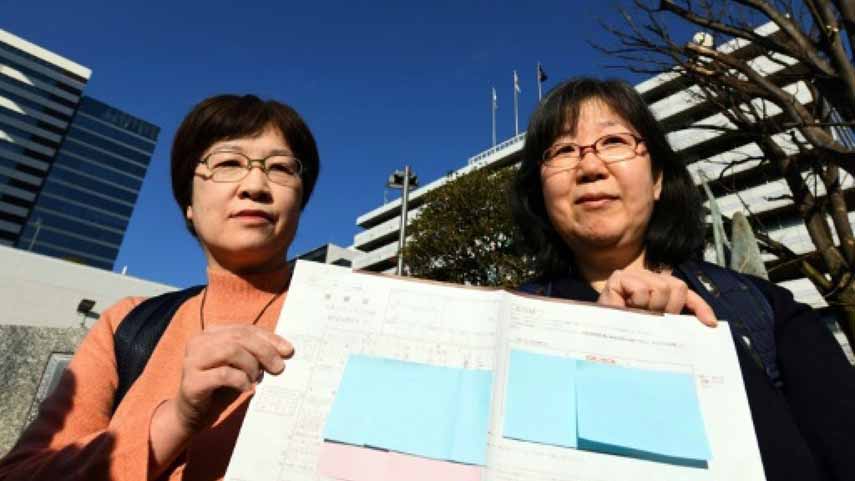
AFP, Tokyo :
Chizuka Oe and Yoko Ogawa have been together for 25 years, but when they submitted their marriage registration at a Tokyo town hall, they knew it would be rejected.
“We were told that they cannot accept our registration because we are both women,” said Ogawa, standing outside the building in Nakano in western Tokyo.
“There were several heterosexual couples next to us who submitted marriage registrations without any problem,” she added.
The couple is now planning to take action: Along with 12 other same-sex couples, they will file lawsuits on Valentine’s Day seeking to force the government to recognise gay marriage.
“Why don’t we even have the simple choice of whether or not to get married?” asked Ogawa, who said she and Oe were forced to wait a long time before ultimately being turned down.
The five lesbian and eight gay couples involved will file lawsuits across the country seeking damages of one million yen ($9000) a person for being denied the same legal rights as heterosexual couples.
Japan’s constitution stipulates that “marriage shall be only with the mutual consent of both sexes” and the government says this means same-sex marriage is “not foreseen” in the constitution or civil law.
But lawyers for the plaintiffs and other legal experts counter that there is nothing in the constitution that would prohibit same-sex marriage.
They argue the language of the 1947 post-war constitution is only meant to ensure equality between prospective spouses and prevent forced marriages.
The government’s failure to enact a law allowing same-sex marriage violates the constitutional principle that “all people are equal under the law,” said Akiyoshi Miwa, who is representing some of the plaintiffs.
Agonising’ situations –
A survey in January found nearly 80 percent of Japanese aged 20 to 59 support legalising gay marriage.
Japan is the only nation from the Group of Seven countries that does not recognise same-sex unions.
Historically, Japan was broadly tolerant of homosexuality, with documented cases of samurai warriors during feudal times having male lovers.
Same-sex relationships were even depicted in traditional art, such as ukiyoe, or wood block prints.
But as Japan industrialised and modernised from the late 19th century, Western prejudices against homosexuality were increasingly adopted.
Last year, the ruling party came under fire after one of its lawmakers claimed the lesbian, gay, bisexual and transgender (LGBT) community was “unproductive” because they “cannot have children.”
And Oe and Ogawa say they have struggled with confusion and prejudice stemming in part from Japan’s lack of marriage equality.
When the couple attended the funeral for Ogawa’s mother, relatives treated Oe with suspicion, particularly when she handled condolence money.
Ogawa said many relatives quizzed her on who Oe was.
She explained: “I was tired, sad, and in such an extreme situation it was agonising to explain that we are a lesbian couple, that we are the same as a regular heterosexual couple.”
“If there was a legal system of same-sex marriage, it would have been easier,” she added.

